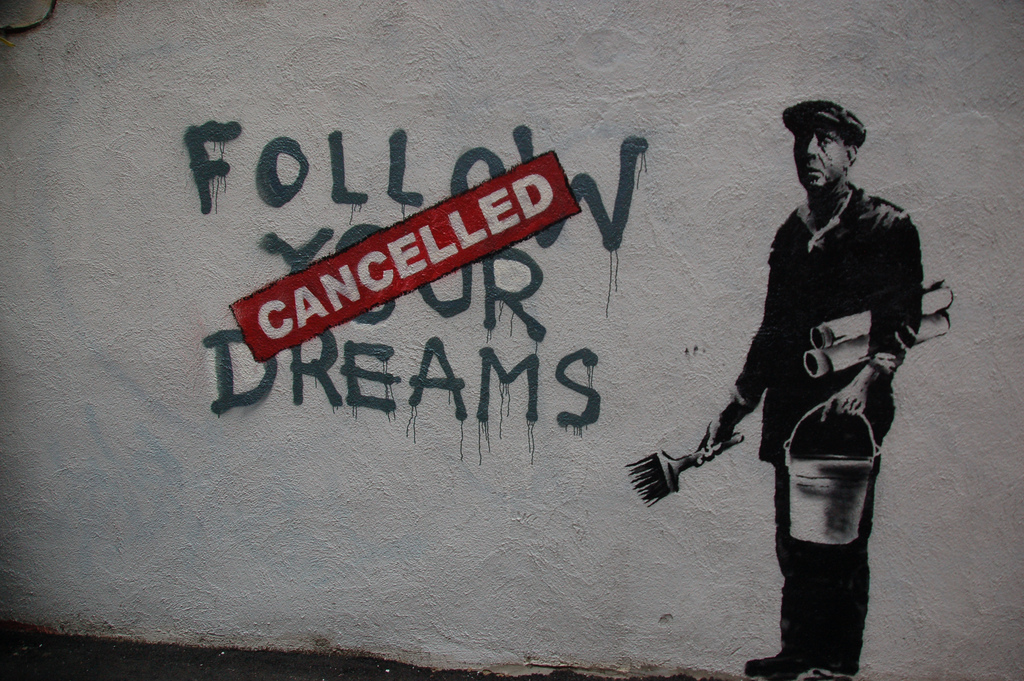Working on the edge of poverty: Slovenia’s self-inflicted wound over labour market reform
Labour market reform in Slovenia, designed to boost entrepreneurship and jobs, is condemning thousands of people to near poverty through precarious working conditions. An analysis by Investigate Europe’s media partner Pod črto.

In a drive towards entrepreneurship following Europe’s economic slump, workers have been encouraged to take up EU-funded incentives for self-employment, so-called sole-proprietorship, allowing many to trade a degree of job security and social welfare provision for lower taxes and support starting their own businesses.
But in too many cases the scheme has turned sour, with some sign-ups pulling out and employers evidently taking advantage of sole-proprietors. As a result, roles once filled by employed workers who enjoyed workplace and social benefits are now done by sole proprietors who get none. It’s a pervasive practice that’s had the effect of increasing work precarity.
Some bad history
In the last decade, successive Slovenian governments followed the anti-crisis strategies of many EU states. Notice periods for permanently employed workers have shortened, severance pay has decreased and work legislation has been deregulated. However, at the same time the Slovenian Ministry of Labour, Family, Social Affairs and Equal Opportunities developed another model for the country’s socio-economic improvement.
It proposed a subsidy programme for unemployed people wanting to start a business and re-enter the labour market as sole-proprietors, a specific form of self-employment which has become the most common form of precarious work in the country. The ministry suggested Slovenia use EU funds to pay the subsidies and the European Commission approved. In the period between 2007 and 2013, 97 million EUR was spent to subsidise new sole-proprietorships and other forms of self-employment.
Out of this, 86 million EUR, almost 90 per cent, was a contribution from the EU. The money came from the European Social Fund, Human Resources Development Operational Programme. Ninety percent of those funds was used to subsidise sole-proprietorships. Other forms of self-employment, such as limited liability companies, were also financed, although on a much smaller scale.
From 2007 to 2013, just over 23,300 individuals received a one-time subsidy to launch sole-proprietorships, a high number when you bear in mind Slovenia’s population is just over 2 million: more than 1% of all Slovenians received the subsidy. The level of subsidy increased over time. In 2007, it was 2,100 EUR. From 2008 until the first half of 2013 it rose to 4,500 EUR. Six months later it was 5,000 EUR.
“Good news”
At the end of the 2007 – 2013 programme, the ministry commissioned an evaluation. It was completed in January 2017 and, in its main conclusion, deemed the programme a success. In some years, it claimed, the programme had contributed to around a quarter of all new work placements.
The study also estimated that 11 to 16,5 % of subsidy recipients had opened a sole-proprietorship or other form of self-employment because they felt it was the only way to remain with an employer seeking to lower workforce costs by shedding permanent employment contracts and replacing them with cheaper contractual workers, a practice known as fictitious employment. Rather surprisingly, the report concluded that, in the wider context, such fictitious employment is actually still preferable to the loss of employment.
Not so “good news”
Other analysis suggests the results were more mixed, for example on the scheme’s capacity to retain sole-proprietorships. According to the ministry’s report, of 1,600 recipients of subsidies in 2008, 46% had closed their business by 2013, with 54% remaining sole-proprietors. Of 5,150 people getting a subsidy in 2010, 61% stayed with self-employment, while 39% folded.
Even though the report concluded the subsidies programme was successful, the ministry decided to drastically lower its scope in the current financial period, allocating 7 million EUR to stimulate youth entrepreneurship and 3,7 million EUR for women entrepreneurs.
As the ministry explained to investigative reporters at Pod črto, one of the reasons for scaling back the programme was constant criticism by a number of stakeholders. Many focused on complaints that the subsidy system doesn’t work, as sole-proprietors are often not able to pay their social security contributions, leading to the creation of a class of “working poor”.
For example, based on data from the National Statistical Office, the overall poverty rate in Slovenia in 2015 was just over 14%. Among the non-active and long-term unemployed it was 26%. Strikingly, among the new class of sole-proprietors it was more than 22%, just beneath the poverty rate for permanently unemployed people.
Irreconcilable contradictions
Such an outcome was not unexpected. In the past, student jobs and working through author contracts were popular choices for people, despite the precarity of the work. Anyone with student status could work for an employer with no limits. Many people enrolled in educational programmes just to get student status. In creative industries, including journalism, people worked for employers under author contracts. To the employer, both forms of work were significantly cheaper than regular employment contracts. Their contributions on student jobs amounted to around 25% of gross payment, compared to around 43% on an average wage for normal employment contracts. Under the author contract, a contractor had to pay only 22,5% income tax.
However, in the period 2013 to 2015 student jobs and author contracts became more expensive for employers and much less attractive. New laws demanded that social contributions now had to be paid on both forms of work. In exchange, students and authors working under those arrangements would now get a certain amount of pension. The government was attempting to rein in the proliferation of precarious work. At the same time, it also made work through sole-proprietorships significantly cheaper and easier to manage, with fewer bureaucratic burdens and simpler and cheaper accounting.
Before, a sole-proprietor had to pay social contributions and personal income tax on all earnings minus work expenses. Personal income tax in Slovenia ranges from 16% to 50%, depending on earnings. But in January 2013, the government introduced another form of sole-proprietorship for those earning less than 50,000 EUR a year. They would pay an effective rate of personal income tax of only 6%. In 2015, the government lowered this even further to 4%, far less than the rate paid by regular employees working under a normal contract. The rising cost of student jobs and author contracts has meant sole-proprietorships have become one of the main vehicles for precarious work in Slovenia, even despite the low tax rates.
Fictitious employment
It is now a widespread practice that an employer hires a sole-proprietor for a job which because of its nature has until now been done by an employee. The sole-proprietor works under the same office conditions. This practice is called “fictitious employment” and was subsidised, albeit unintentionally, by the Slovenian government. We have found several such examples during our investigations: individuals who received state subsidies for self-employment and found themselves working for a single employer without a work contract.
Checks without balances
Such fictitious employment is explicitly illegal under current legislation and penalties can be imposed after a workplace inspection. However, according to Andrej Zorko, a secretary at the Association of Free Trade Unions of Slovenia, inspectors have not been doing a good job in any area. He says they have been understaffed and not willing to vigorously pursue those not adhering to the law. Before an inspection takes place, inspectors usually tell the employer they are coming and need to see all relevant documentation, giving the employer enough time to “cook the books”.
At the end of 2017, the Slovenian parliament adopted two major amendments to the law on work inspection. Inspectors now have the power to order an employer to employ the “fictitious worker” under a regular contract. If the employer doesn’t do this he could be fined. The inspector now also has the power to close a business if an employer is not paying salaries to his/her workers.
These changes would be positive if they were effectively enforced. But work inspection remains understaffed and inspectors find it increasingly difficult to prove cases of fictitious employment because of the shifting nature of the relationship between an employer and employee and transitory employment trends, such as co-working and the gig or platform economy.
Moreover, the government must address other problems before sole-proprietor subsidies can be successful. For example, women are more often forced involuntarily into sole-proprietorship than men. Sole-proprietors are also extremely vulnerable because of poor legal protection, long-lasting civil trials, a lack of transparency and a low and late paying culture in Slovenia. In addition, specific forms of sole-proprietorship are very convenient for high-income earners, most often in tech and consulting, who use the status for tax optimisation, thereby contributing to income inequality.
The Slovenian experiment has shown that government subsidies can indeed create new jobs and improve national unemployment statistics. However, almost 40% of the participants have given up their one-man enterprises. Many remaining entrepreneurs have stayed to become the working poor.
Staring at the obvious
The lesson is simple. Negative impacts of deregulation of the labour market cannot be solved by relatively minor corrective measures such as self-employment subsidies. Such subsidies only make sense if individuals are protected against misuse and the precarity of their working conditions. If not, they’ll only be helping employers get more power over their workers…with extra help from the state.
Nastanek tega članka ste omogočili bralci z donacijami. Podpri Pod črto
Deli zgodbo 0 komentarjev






0 komentarjev